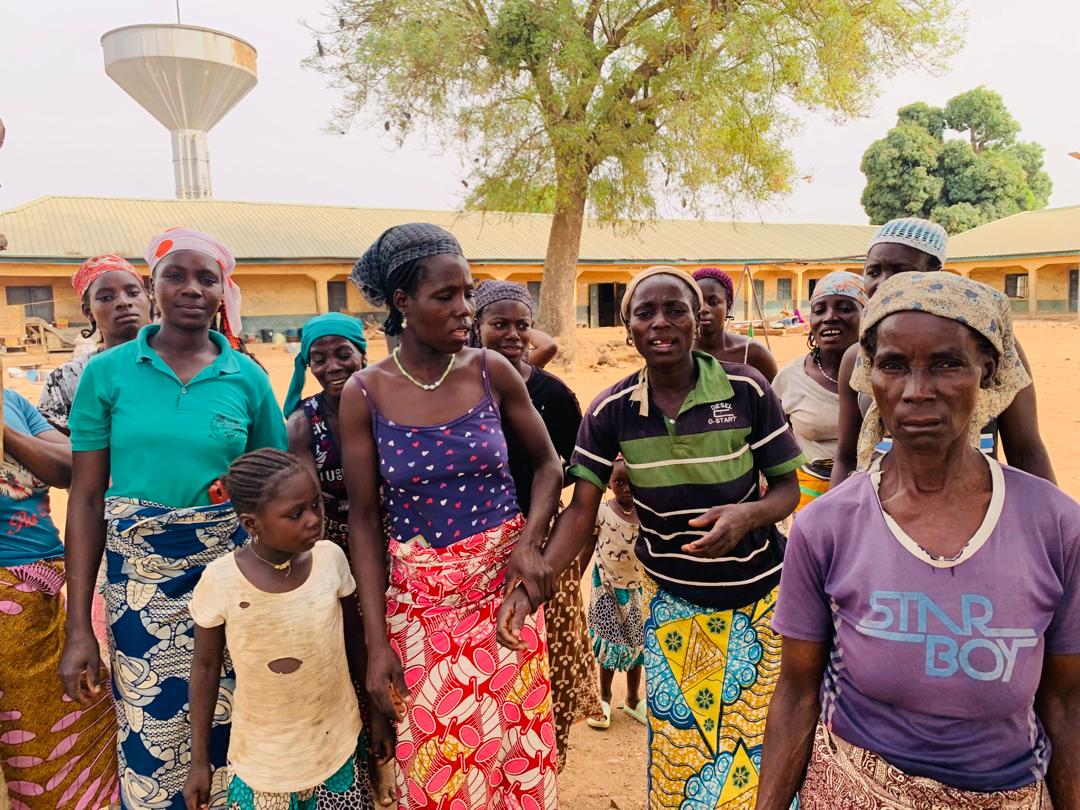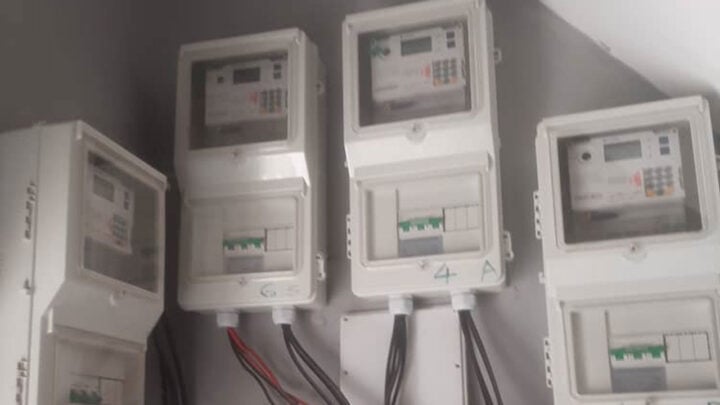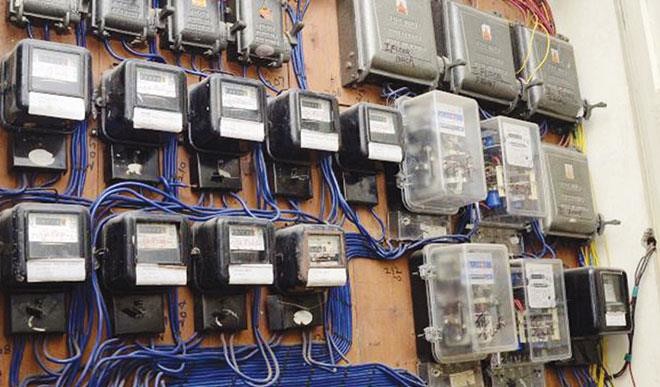Even within the confines of their homes and the sturdy walls of their modest rooms, they still whisper to talk about menstruation. Such topics are considered too delicate and deemed “shameful” to discuss in the open.
The deeply rooted culture followed them from Kaure village where they ran from bandit attacks to Gwada town in Shiroro LGA of Niger state, where they have been living for the past five years as internally displaced persons (IDP).
Jinkai Yohanna was breastfeeding her one-year-old baby under a short tree in the camp; there were two elderly women lying sickly on the ground. The moment Yohanna was briefed on the subject matter of the interview with this reporter, she quickly stood up and started walking towards her room.
‘ALL OF US DON’T USE SANITARY PADS’
Advertisement
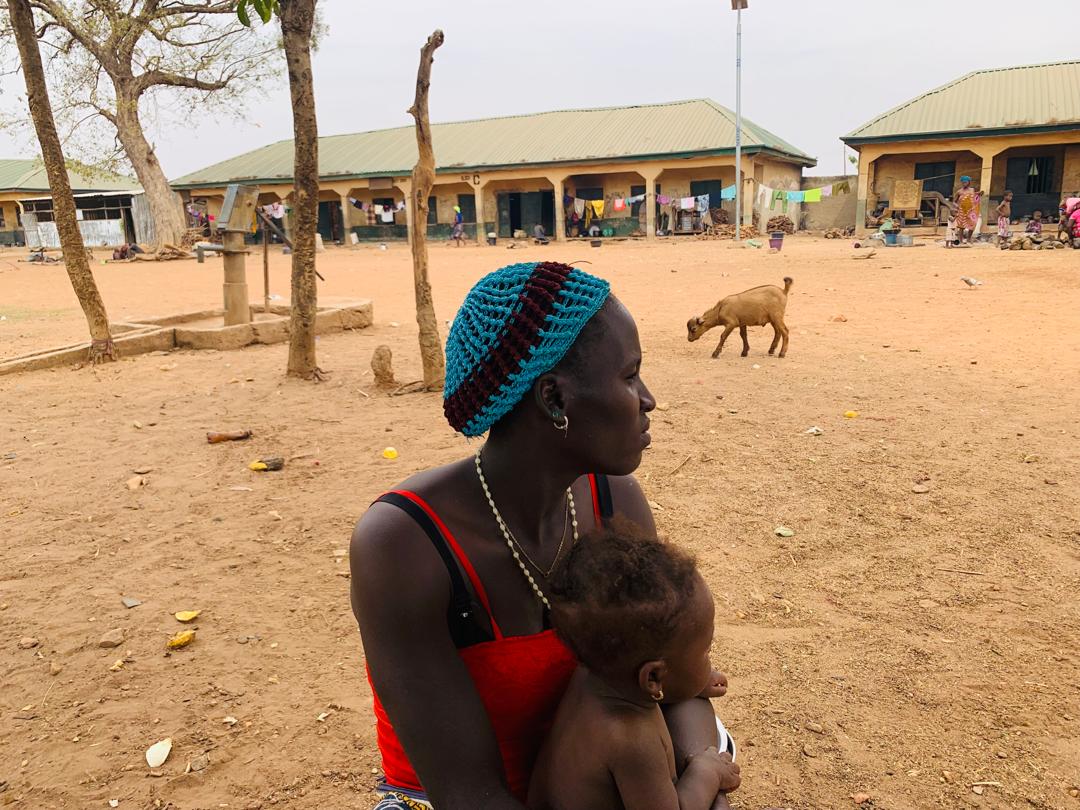
Before Yohanna arrived at the IDP camp five years ago, she had never heard of or seen a sanitary pad. She used rags torn from her clothes to hold her menstrual flow. This is a common practice among women and young girls in her village.
She first set her eyes on a sanitary pad two years ago when some members of a non-governmental organisation (NGO) visited the camp to distribute the item.
“I kept looking at the pampers (as she calls it) but was able to get it correctly after many attempts. That was the first time I used it but I was not comfortable. I kept feeling it would fall on the ground when walking,” she said.
Advertisement
The 30-year-old mother of two children said many of the women in the camp do not use sanitary pads, adding that most of them don’t even know about it.
“There was a time I had heavy flow in the camp; so I went to the Kasuwan kare (market) to buy it. I went with a black nylon. When it was handed to me, I quickly wrapped it in the nylon. You know it is a very shameful thing,” she added, as she used her hands to cover her face shyly.
“When I returned to the camp, I tried it but I was still not comfortable. That was the only one I used out of the many pieces in the pack.”
Yohanna immediately returned to using rags. According to her, she had never bought new clothes for herself since she arrived at the IDP camp. This means for the past five years, she has been using pieces of clothes removed from her old clothes for menstruation management.
Advertisement
MENSTRUAL MISINFORMATION THRIVES
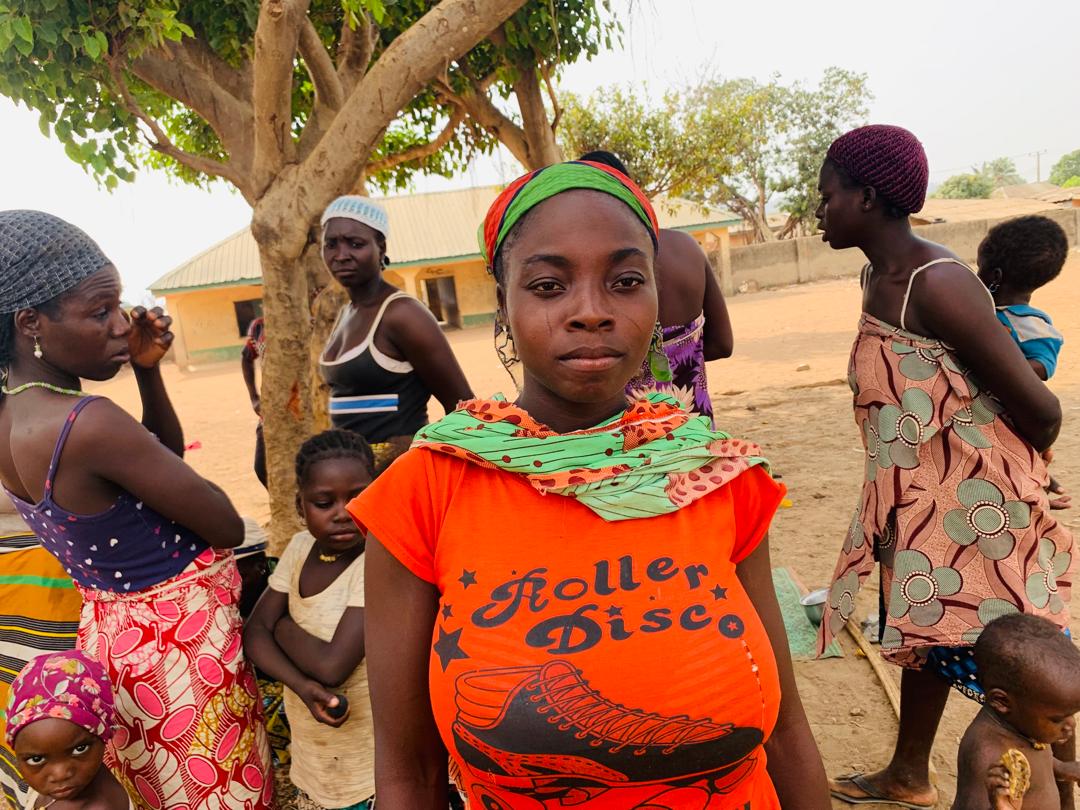
Martha Jonathan was among the women who received sanitary pads from the NGO two years ago. The 28-year-old woman said she still has the sanitary pad given to her to date. According to her, she continued using rags that she was used to.
”I am not used to it and people are saying when you use the pampers (sanitary pad), it will stop your menstruation flow. They said you will not see your menstruation and won’t be able to give birth to children,” she said, acting so sure about her belief.
It was a different case for Cecilia Emmanuel. She works at a farm where she peels large bowls of cassava for a stipend of N400 or N500 daily. She works for two days before she can buy a small bowl of grains for her family.
Advertisement
Emmanuel was less concerned about spending her money on sanitary pads, viewing them as unworthy expenses when she could simply use alternatives like rags. All through her lifetime, she has never seen a pad, having grown accustomed to using rags. However, she was open to using sanitary pads if given as gifts.
“Things are harder for us now. Why will I take the money I should be using for food to buy menstrual clothes?” she asked.
Advertisement
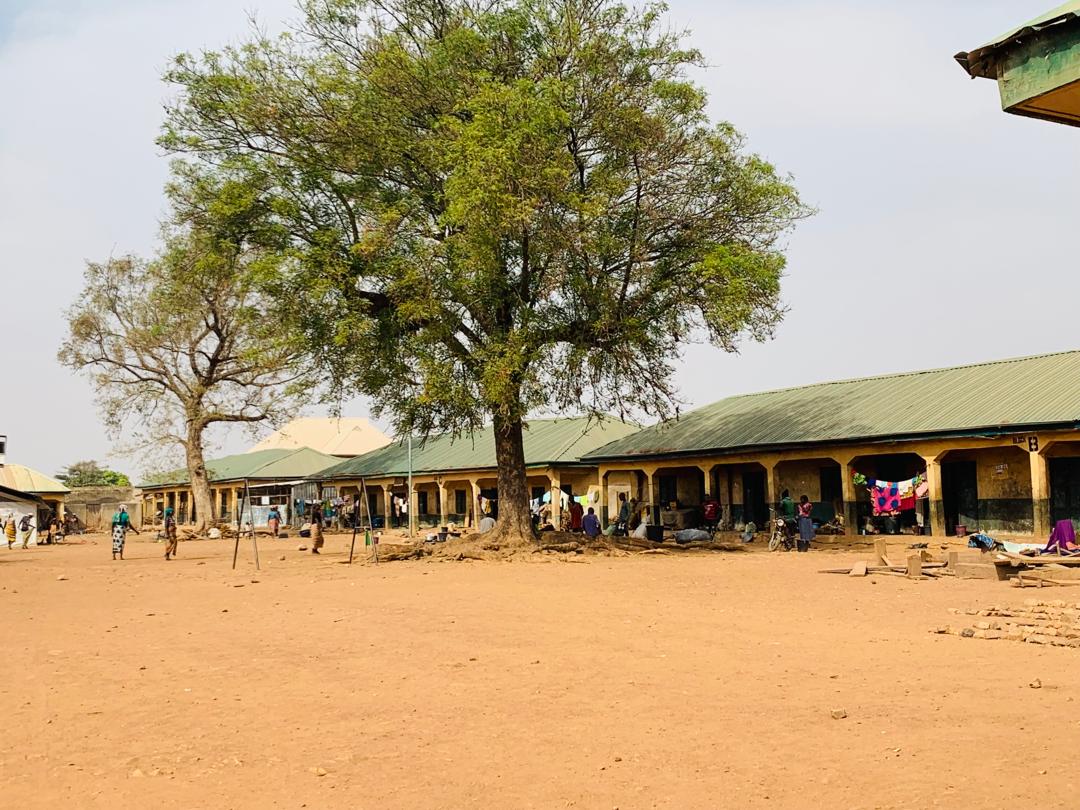
TheCable understands that virtually all the women and girls in the camp don’t use appropriate hygiene absorbent materials to manage menstruation.
Aside from the poor value placed on it, cultural beliefs, poverty, and lack of proper awareness are also hindering the need to maintain personal hygiene during menstruation.
Advertisement
HEALTH CONCERNS OF USING RAGS
Promoting menstrual health and hygiene is an important way of safeguarding women’s self-efficacy, bodily integrity and dignity.
Advertisement
According to the United Nations Children Fund (UNICEF), the use of “cloth is not often recommended for menstrual hygiene management as their use has been associated with abnormal vaginal discharge, skin irritations, and urogenital infection”.
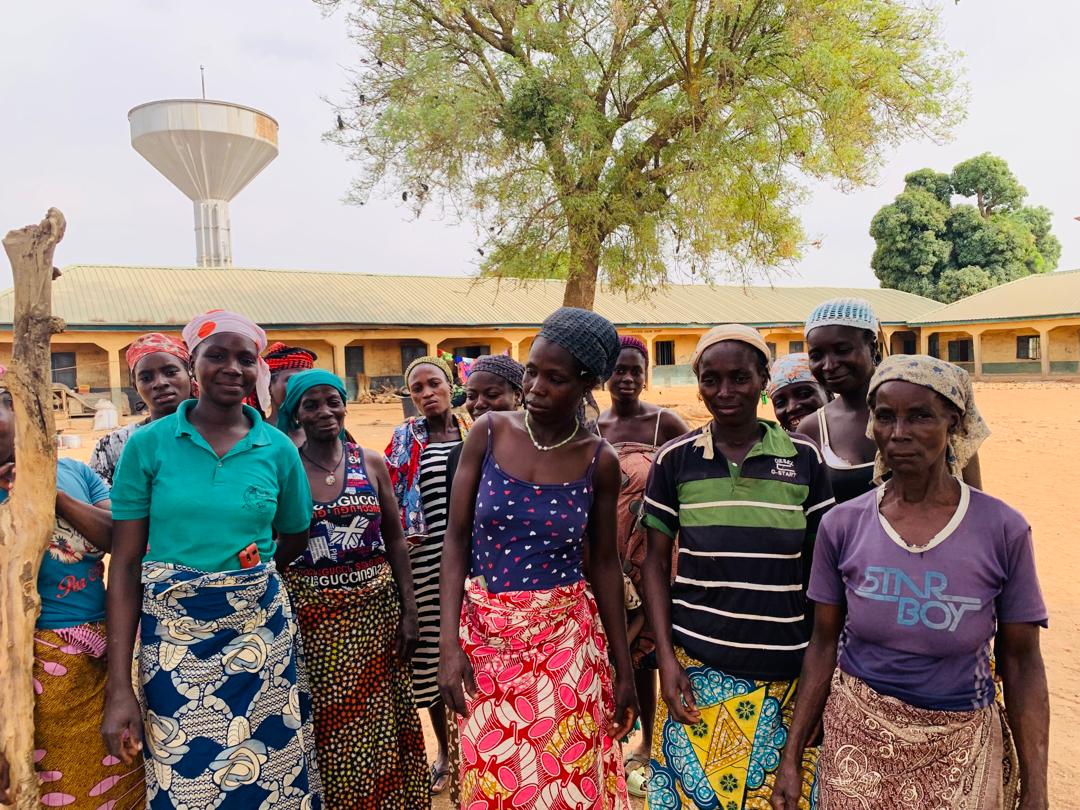
In 2023, about 37 million girls in Nigeria could not access menstrual products. Despite the exemption of sanitary products from value-added tax (VAT), the inflation rate continues to push more Nigerians into poverty and prices of many basic items continue to upsurge.
The United Nations Population Fund (UNFPA) said an average woman menstruates for 2,535 days of her life. A woman would need at least a pack or two of sanitary pads or tampons to manage her period monthly.
Currently, in Nigeria, the lowest price of a sanitary pad is N800, while the most patronised pads are sold for N1,500. This means that women in the camp who work the whole day for a stipend of N300 or N400 may not be able to afford sanitary pads after other daily necessities are catered to.
WHO: ADDRESS MENSTRUAL HEALTH AS HUMAN RIGHT
During the 2022 50th session of the Human Rights Council panel discussion, The World Health Organisation (WHO) said menstrual health should be addressed as a health and human rights issue and not as a hygiene issue.
“To recognise that menstrual health means that women and girls have access to information and education about it, to the menstrual products they need, water, sanitation, and disposal facilities to competent and emphatic care when needed,” WHO said.
The WHO also recommended that women on their period should “live, study and work in an environment in which menstruation is seen as positive and healthy, not something to be ashamed of, and to fully participate in work and social activities”.
In September 2023, Mary Noel-Berje, special adviser on women and affirmative action to the governor of Niger state, promised to ensure that sanitary pads are included as part of the government’s programmes in the state.
“If the federal government is not going to take it up as a challenge, I think this state will really have to come up with a policy or a support system that will go a long way in dealing with this issue,” she said.
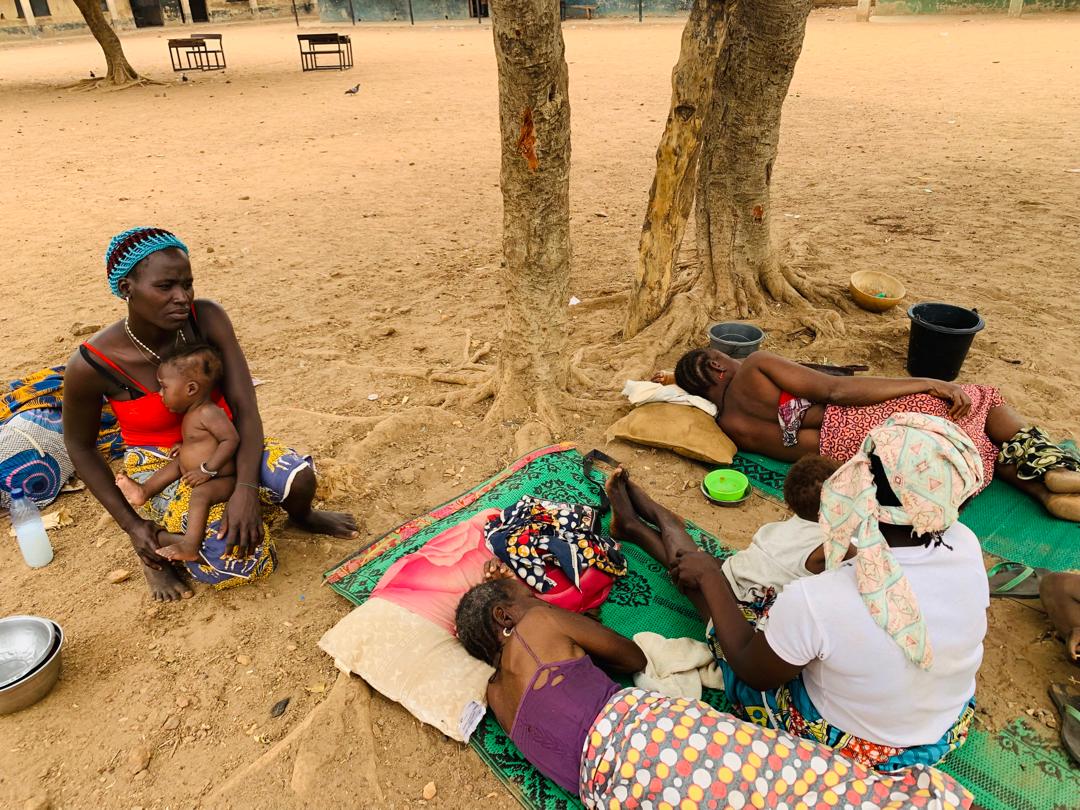
AWARENESS CAMPAIGNS NEEDED TO TACKLE MISCONCEPTIONS
Aisha Wakaso, founder of the Aisha Wakaso Foundation, a non-profit organisation focused on empowering the girl child, said improved advocacy to the IDP camps will remove the misconceptions and attitudes of the IDPs towards the use of proper menstrual absorbent during periods.
“This can be taken as a campaign that could be funded by international organisations just like condoms and mosquito nets being distributed for free, free pad distribution could also be taken up by the government to reduce period poverty,” Wakaso said.
“To tackle myths and misconceptions, the government can run awareness campaigns specifically targeting IDP camps, involving community leaders, healthcare professionals, and influencers to dispel myths and provide accurate information about the use and benefits of sanitary pads. Educational programmes could be extended to address these concerns and promote a better understanding of menstrual health.
“Since VAT has been waived and sanitary pads are still unaffordable to many women in Nigeria, I think a way forward would be for the government to negotiate with manufacturers for reduced prices, and implement price controls to counter the economic challenges and ensure the affordability of sanitary pads. Secondly, the government should provide free sanitary pads for girls in public schools monthly.”
Wakaso, who is also the special adviser on print media to Umar Bago, governor of Niger, said: “addressing the lack of awareness among women in the IDP camps will involve implementing education programs, creating awareness, sensitization on menstrual hygiene, the importance of menstrual hygiene, and the proper use of sanitary pads and again the free distribution of sanitary pads in the camps”.
She added that the government needs to work towards making sanitary pads affordable for women and girls by regulating the price of the product.
Add a comment
